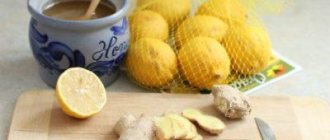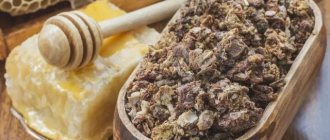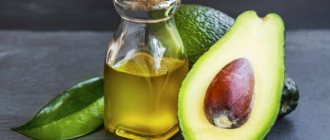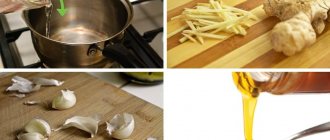Carob syrup: what is it, how and what is it made from?
Carob is a little-known product in Russia, to which all fans of a healthy lifestyle sing odes, leaving very commendable reviews about it. It is a powder or syrup that is obtained from the plant Ceratonia capita. This tree is also called carob, grows in Cyprus, in the Mediterranean countries (Spain, Italy), has a large spreading crown. The fruits of the tree are used for production.
The plant belongs to the legume family. The fruits of the tree are large pods, similar to a horn, their size can reach 30 cm. They are crushed and a juicy pulp is obtained. Then the mass is evaporated. The result is a rather viscous liquid of a dark brown rich hue. This is carob.
The main producing countries are Turkey, Cyprus, Spain, Greece, Syria. You can buy carob in liquid, powder form and whole fruits on iHerb and other natural food stores. Examples of Turkish syrup from the fruits of Ceratonia are pekmez “Royal Forest”, “Gifts of the Pamirs”, “Ceren”; Greek - “Kurtes”; Cypriot - "Mellona".
How to choose quality Turkish carob syrup?
Due to its exotic nature, the syrup is little known on the domestic market, so buying it in a regular store will be problematic. Sales are carried out by specialized retail outlets or online stores. When choosing a syrup, you need to focus on the manufacturer of the product. It must be known and verified.
The main producers of syrup are Türkiye and Cyprus. The corresponding country is indicated on the label. Therefore, it is recommended to choose a product originating from these regions. The best purchasing option would be to order directly from the manufacturer, or purchase the syrup in the country where it was produced.
A quality product must have a certificate confirming its authenticity. If the seller cannot provide the relevant documents, then there is a risk of purchasing counterfeit products.
When choosing, you should also pay attention to the appearance of the syrup:
- the packaging must be hermetically sealed;
- the label contains information about the product, production date and expiration date;
- the liquid should have a viscous, uniform consistency without clots (you can check this by shaking the bottle of syrup).
Composition and calorie content
The syrup contains many useful substances. There are 320 kilocalories per 100 g of product, which corresponds to 15% of the daily energy intake for a healthy adult.
Nutritional value of the product (per 100 g):
- proteins - 2.5 g;
- carbohydrates - 76 g;
- fats - 0.3 g.
The carbohydrates that make up carob are easily absorbed by the body, so the product is considered dietary. They give strength and energy, while quick saturation does not lead to fat deposits. It also contains a lot of B vitamins, tocopherol, iron, copper and other trace elements. Carob contains tannins, acids of organic origin, pectin, and starch.
Use of carob in cooking and delicious recipes
Carob is used as a substitute for chocolate and cocoa. It is also used as an additive or sauce for various dishes. There are other known uses for culinary purposes. Thus, syrup is widely known as one of the ingredients for preparing Mediterranean dishes. Let's look at some recipes.
Fruit salad
Mango, kiwi, pieces of papaya and green grapes are mixed with cream, a spoonful of coconut milk and lemon juice are added, and syrup is poured on top.
Here are other dressing options for fruit salads.
Avocado pancakes
Carob based flour is mixed with baking soda and water. The pancakes can be cooked in butter and then wrapped in a crushed avocado mixture with mint and lime leaves. Pour syrup made from carob on top.
Nut butter
To start, grind walnuts, almonds and hazelnuts in a blender, add some candied fruits, mix with ground melted chocolate and carob. Children especially like this sweetness, and it is very healthy.
Nut-fruit mixture
You can buy this mixture in a store or make it yourself. It is enough to mix walnuts, almonds and cashews with a mixture of dried apricots, prunes, candied fruits and add three tablespoons of carob. Afterwards, mix all the ingredients thoroughly and refrigerate for 15-20 minutes. Children simply adore this delicacy. This mixture can also be added to plain ice cream.
Reference
The use of carob syrup in cooking is due to the fact that it has a sweetish taste. It is often used to top ice cream and add to pancakes, sweet pies, cakes, and waffles.
The product will be an excellent addition to nuts and dried fruits. Its light chocolate aroma goes well with sponge cake and puff pastry.
What are the benefits of carob syrup and what are its harms?
Carob is used for various health problems:
- the product copes well with colds and coughs;
- helps with migraines, sleep problems;
- used in the treatment of diseases of the gastrointestinal tract;
- useful for gout.
On a note
Carob is added to tea and coffee to normalize intestinal function, and to protein shakes to give strength and tone.
When used regularly, this remedy helps to get rid of shortness of breath, anemia, improve heart rhythm, and reduce cholesterol and blood pressure. The syrup is especially useful for pregnant women and children.
Another benefit of syrup is that, due to the presence of potassium, it improves muscle tone and maintains a healthy water-salt balance. Iron, copper and vitamin E have a complex antioxidant effect, slowing down the aging process of tissues and preventing the development of cancer.
Attention!
Carob can bring both benefit and harm. Due to the sugar content, diabetics, those with a tendency to be overweight, overweight and obese should not abuse it.
However, the glycemic index of carob powder is 40, so it is allowed in limited quantities for type 2 diabetes.
Indications for use of carob syrup
The syrup has a powerful immunostimulating effect, so it can be used as a general tonic during colds. It helps in the fight against severe cough, relieves inflammation of the mucous membranes, and reduces pain in various diseases of the respiratory system.
The use of carob syrup from Turkey is possible for various diseases
Regular consumption of syrup helps increase the body's resistance to various infections and helps quickly restore strength after an illness. The product improves the process of hematopoiesis due to the content of iron, folic acid, copper and vitamin C.
The product is approved for use by people with diabetes. The syrup is used as a sweetener and also helps normalize blood glucose levels in type 2 diabetes.
The syrup also has a mild sedative (calming) effect on the body. It is taken for irritability, overexcitation, and feelings of fear and anxiety. The product fights symptoms of depression and helps with insomnia. The choline contained in the composition (vitamin B) helps improve brain activity and improves memory.
Instructions for use of syrup: how to use for various diseases
Here's how to use the syrup for medicinal purposes:
- For gastritis - 2 tsp. per glass of water, or in its pure form twice a day.
- For heart problems - 1 tsp. in tea, take once a day.
- For problems with the gastrointestinal tract - add to salads, breakfasts, tea, coffee. You can drink a tablespoon in the evening, but not just before bed.
- For migraines - 2 tsp. add to tea with lemon. Drink twice a day, preferably in the late afternoon or during migraine attacks.
- For cough - add 2 tsp to chamomile tea. syrup and cinnamon powder on the tip of a knife, drink at night.
- For insomnia, drink a syrup-based infusion or take a tablespoon three to four hours before bedtime.
On a note
For immunity, it is useful to eat 1 tbsp every day. l. a mixture consisting of dried apricots, prunes, walnuts, raisins (100 g each), lemon zest (3 tbsp), aloe juice (50 ml) and carob (50 ml). The course can last up to 3 months.
The product is also effective for weight loss. To do this, it is added to protein shakes before training to gain strength before playing sports. Carob is also taken at night to reduce appetite. They flavor fruit salads as a substitute for sugar, as well as soy products to give them a brighter taste.
Carob syrup from Cyprus - application
Carob does not contain toxins or carcinogens, but is extremely rich in tannins and organic acids. It also contains starch, pectin, protein, B vitamins, minerals and trace elements, sugar. For what diseases is carob syrup from Cyprus useful?
Diabetes
When making syrup, no sugar is added at all, since carob pods are sweet in themselves. Therefore, it is indicated for diabetes, although in moderate doses, no more than 1 teaspoon twice a day.
The syrup should be drunk at the first signs of ARVI, as well as during cough and sore throat. For children from 2 to 5 years old, dilute 1 tsp in a glass of hot water and give it before meals, about half an hour. From 5 to 12 years old, 1 dessert spoon is recommended, while adults can enjoy a whole tablespoon of this delicious medicine. It is better not to rush to give syrup to children from 0 to 2 years old without consulting a doctor.
Heart and blood vessels
Due to the high content of potassium and sodium in the product, it perfectly improves blood pressure and is also effective for heart diseases.
Future mothers and children
Carob syrup strengthens teeth and bones, and also normalizes intestinal motility. This product contains a huge amount of vitamins and microelements, so it is recommended for children and expectant mothers.
Carob syrup from Cyprus and its use for weight loss is a separate interesting topic. It's hard to imagine, but women often use carob syrup to become slimmer. Why? Yes, because there is not a single gram of sugar, despite the fact that the liquid is very sweet.
Everyone knows that eating sweets before dinner suppresses the appetite very well. Carob syrup has a similar effect, but even stronger: it not only suppresses the appetite, but also creates the effect of a full stomach. In addition, carob contains a sufficient amount of iron, calcium and magnesium, the replenishment of which leads to normalization of metabolism, decreased appetite, and, as a result, weight loss.
Take 1 tbsp of syrup 10-15 minutes before meals, and you will eat half as much. The product can be diluted with water and, for greater effectiveness, add lemon. You can start with two times a day, and then drink this miraculous remedy before breakfast, lunch and dinner.
Where to buy carob syrup in Cyprus? You can buy this miracle product at any supermarket. The cost of a bottle (250 ml) is 4 euros.
In cooking, it is used as a sugar substitute: added to baked goods, tea, coffee. Pour over porridge, cottage cheese, pancakes and even salad.
I am happy to share a recipe for vegetable salad with carob syrup. To prepare the salad you will need:
- carrots, apple, orange (one piece each),
- beets, celery root (100 grams each),
- prunes (12 pieces),
- olive or sunflower oil – 1 tablespoon
- carob syrup - 3 tablespoons.
Grate vegetables (carrots, beets, celery root) on a Korean carrot grater, apples on a regular grater, steam prunes and cut into pieces, peel and cut the orange into slices.
Mix everything, season with oil and pour over carob syrup. The taste is very original.
Carob syrup has a special flavor that takes some getting used to, but I especially like using this syrup in baking.
If you add syrup when baking a cake, then after heat treatment you will feel the pleasant taste of chocolate and the cake will be chocolate-colored.
In addition, in Cyprus you can buy special sweets - nuts in carob syrup, usually almonds and walnuts are prepared this way. Such sweets are very useful for children and diabetics, as they do not contain sugar.
You can make sweets from dried fruits and nuts by adding carob syrup.
At home, carob syrup is good to use to treat sore throats, coughs, and colds.
To treat colds, dissolve one tablespoon of carob syrup in one glass of hot water (temperature about 60 degrees). And during the day they drink 5-6 glasses of this drink. It is well known that when you have a cold you often need to drink plenty of fluids. This drink has a mild diuretic effect, which helps remove toxins from the diseased body. You can also rinse your sore throat with the prepared drink.
If you have constipation or diarrhea, then carob syrup will come to the rescue. To overcome gastrointestinal disorders, you need to take the syrup in this way:
- adults: 1 tablespoon of syrup 4-5 times a day, half an hour before meals;
- children 2–5 years old – 1 teaspoon once a day;
- children 5 to 12 years old - 1 teaspoon 3 times a day.
- Children under 2 years of age are not recommended to consume carob syrup.
If you are worried about insomnia, nervous disorders, headaches, then you should take this syrup 1 tablespoon 5-6 times a day before meals. Reception should be carried out in courses - 3 months, then a break of 2 weeks and can be repeated.
To lose weight, you should prepare a special drink: take water at room temperature, and dilute a tablespoon of syrup in it, adding a slice of lemon and mix everything thoroughly until the syrup is completely dissolved. This drink should be prepared 2 times a day and drunk 5-15 minutes before meals (lunch and dinner).
In medicine, syrup and powder from carob beans are used in medicines that are intended to improve the condition and treat:
- respiratory diseases: acute and chronic bronchitis, laryngitis, tracheitis, pneumonia, asthma;
- sore throat, hoarseness and sore throat;
- acute respiratory infections and acute respiratory viral infections;
- purulent-inflammatory eye infections;
- stomatitis, gingivitis, periodontitis;
- nervous system disorders: insomnia, melancholy, irritability, nervousness, migraine;
- diseases and dyspepsia of the digestive tract: diarrhea, gas formation, nausea, belching, indigestion, intestinal infections, enteritis;
- prevention of cataracts and hemeralopia;
- gout;
- dysfunction of the cardiovascular system;
- potency disorders, to prevent diseases of the urinary system in men: prostate adenoma, prostatitis, urethritis;
- infectious venereal diseases;
- strengthening the immune system.
Sweets and products made from carob syrup are included in the diet of those suffering from kidney stones, since they do not contain components that affect the absorption of calcium. Syrup and bean flour are valued for their sweet taste and the ability to use them for diabetes, during a diet, and in the treatment of obesity.
Carob products do not cause diathesis and allergic manifestations in children. Therefore, instead of cocoa powder, baby food manufacturers often use carob, adding it to desserts, mixtures, and purees. Syrup is added to juices, cocktails and sweet drinks.
The following recipes can be prepared at home:
- Tea made from crushed carob beans: 1 tbsp. l. dried raw materials, pour 250 ml of water, let the drink brew for 15 minutes, after which the drink is ready for use. Delicious tea is used for nervous disorders, as well as colds.
- A decoction of carob fruit is prepared as follows: 500 g of carob fruit is poured with 500 ml of boiling water, then boiled for another 1 hour, and filtered at the final stage. The drink is taken 15 ml 3 times a day to improve the condition of diarrhea until it is completely eliminated.
In folk medicine, carob flour and gum are often used to treat certain ailments:
- To treat gastrointestinal disorders with symptoms of diarrhea, take 20–30 g of flour in milk or warm water until the condition improves. You can also add a little starch to prevent esophageal irritation.
- If vomiting occurs, adults and children over two years old should take 1 tbsp. l. dilute gum in 1 glass of water, and for infants - dilute 1 g of gum in 100 ml of breast milk, and do this with each breastfeeding.
Carob has both beneficial properties and some contraindications. People with fructose intolerance may react poorly to it. It should also be remembered that a sweet substance, like sucrose, increases sugar levels and affects insulin secretion. In addition, the delicious syrup contains no less calories than other sweet drinks.
Therefore, people who are sensitive to fluctuations in blood sugar concentrations should use carob syrup with caution. It is necessary to control the consumption of carob products during weight correction. Carob syrup and powder are not used to treat children under two years of age, as well as in case of individual intolerance to the product.
Carob gum is not broken down in the human gastrointestinal tract and is excreted unprocessed. Consumption of gum does not have a negative effect on the body, but can still cause harm to people with individual intolerance to food additives and stabilizers, as well as those suffering from gastrointestinal diseases.
All the gifts of the carob tree are a real treasure. An excellent cocoa substitute, a medicinal product, a nutritious product rich in nutrients, will bring many benefits if used wisely.
- There are practically no contraindications to the use of carob, syrup and gum, but individual intolerance cannot be ruled out. If this is your first time opening a pack of this herbal product, start with a small portion and observe how your body reacts to the new dish.
- It is not recommended to consume carob with milk, so as not to provoke an upset stomach and nausea.
- Losing excess weight on a carob diet is problematic - carob substances slow down metabolic processes, and the abundance of fructose does not contribute to weight loss. The effect will occur only if the caloric intake of the diet is reduced.
- If you are intolerant to fructose, it is better to avoid carob.
- People suffering from diabetes should introduce new foods into their diet with caution. Natural sugars do not lead to sudden spikes in blood glucose levels, but if consumed in excess, the condition may worsen. Consult your doctor.
Carob beans diversify the diet; for vegans and raw foodists they will be a real gift in the form of factory-made and home-made chocolate. The benefits of chocolate paste, syrup and carob drinks in baby food have also been proven in practice. Carob is becoming increasingly popular among people leading a healthy lifestyle.
How to take for children
This syrup should not be given to a child under 3 years of age due to the tannin content it contains. This compound impairs protein absorption and can potentially slow growth (similar experiments have been conducted in animals). After 3 years, carob is allowed for children in small quantities (maximum 2 tsp per day). It has less sugar than chocolate and no oxalic acid. It is also a good source of calcium.
Syrup and its beneficial properties
It is believed that Cyprus was the first to make syrup from ceratonia horns. It is prepared like this: the pods are placed in a huge bronze cauldron, where they are boiled for at least four hours. The liquid is passed through a fine sieve, which traps pieces of pulp. The finished product has a dark golden color that is pleasing to the eye. Due to its rich taste, it is often diluted with juices, such as orange.
The islanders call their product "Cypriot black gold" and export it widely. It is especially popular in Muslim countries, where it is drunk in large quantities during the month of Ramadan. Currently, Cypriots compete with regions such as Turkey, Portugal, Spain and Sicily, where carob syrup is also widely brewed. Its use, however, is not limited to the confectionery industry alone: this drink is recognized to have beneficial effects on health.
Let us describe in more detail the healing properties of ceratonia syrup :
- It helps with sore throat and cough;
- It contains truly gigantic amounts of calcium: three times more than milk;
- The drink is rich in iron, magnesium, phosphorus, potassium and dietary fiber;
- It contains (albeit in not very significant amounts) vitamins B2 and B3;
- Thanks to the presence of tannins, it treats diarrhea and loose stools (this effect is most pronounced in young children);
- It is free of gluten and casein, which extensive experience suggests may increase symptoms of childhood autism and hyperactivity, migraines and ulcerative colitis in adults;
- The drink is rich in polyphenols - plant antioxidants that help the body cope with harmful free radicals.
Carob syrup is added to drinks or plain water. It is so sweet that four to five tablespoons a day is enough for an adult, but for children and teenagers it is better to limit themselves to three teaspoons.











